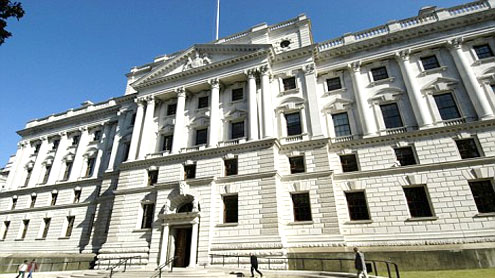
The revelation comes as corporate giants come under fire for their tax affairs. It emerged this week that Starbucks has paid corporation tax of just £8.6million in its 14 years trading in Britain.
In 2010/11, the UK’s total tax revenue was £467billion, but it should have collected an extra £32billion, according to the report published yesterday by HMRC.This ‘tax gap’ is around £1billion higher than it was in the previous year, it admitted. All types of taxes are involved from income tax to VAT, corporation tax to stamp duty on shares and homes, to tobacco duty.John O’Connell, research director of the TaxPayers’ Alliance, said: ‘This yawning tax gap means that hard-pressed families face higher taxes to make up the shortfall.
‘To close the gap, the Government must implement wholesale tax reform to ensure the system is fair and transparent.’HMRC estimates nearly half of the 2010/11 tax gap can be blamed on small and medium-sized firms, a quarter on large firms while the remainder is ‘evenly split’ between individuals and criminals.Mark Serwotka, general secretary of the Public and Commercial Services Union, which represents many HMRC workers, claimed the ‘tax gap’ is much higher at £120billion.He blamed ‘very wealthy individuals and organisations’, adding: ‘We need look no further than cuts in HMRC for evidence of the economic illiteracy of austerity.’
Kris Engskov, Starbucks UK managing director: said: ‘Corporation tax is based on the profits we make in this country – and regrettably we are not yet as profitable as we’d like to be.’He said the company has paid more than £160million in national insurance tax, business rates and VAT over the last three years.HMRC said £1 in every £7.50 of the tax gap comes from companies failing to pay the correct corporation tax. In 2010/11, it lost corporation tax of £4.1billion.David Gauke, Exchequer Secretary to the Treasury, said: ‘These tax gap figures show that the vast majority of people and businesses pay the tax they owe on time.‘Last year £468.9billion was collected, including £13.9billion brought in through HMRC’s work policing the rules.’












